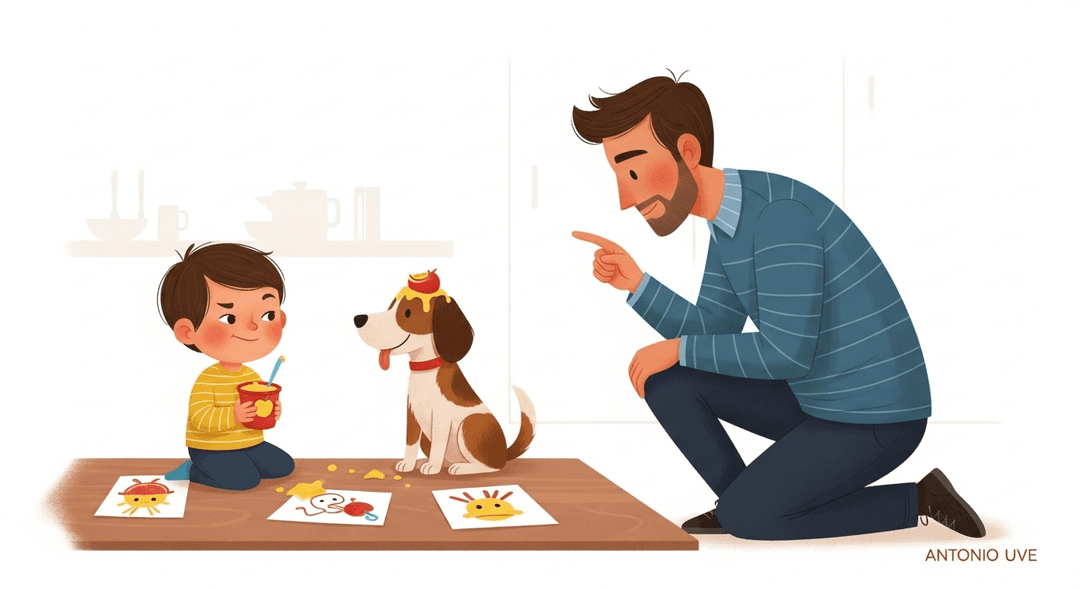Avoid Overly Critical or Harsh Discipline
Ever find yourself channeling your inner drill sergeant when your kid gleefully pours applesauce on the dog? Yeah, me too. If you’ve ever barked, 'NO!' and immediately regretted it—or if you just want to avoid that post-yelling guilt spiral—this one’s for you. Let’s swap the scary voice for the wise mentor (even if you’re faking it till you make it).
Kids who get guidance instead of criticism develop better self-esteem, stronger problem-solving skills, and are less likely to hide mistakes (or, you know, draw on the walls in secret). For parents, it lowers stress hormones (goodbye, cortisol spikes!) and builds a better parent-child bond—plus, your brain gets a workout in patience and empathy.
How to do it
-
Pause before reacting. Take a breath, count to five, or recite your favorite cereal brands—whatever helps you stay calm.
-
Get down to your child’s level and use a calm voice. Bonus points if you can channel your inner Mr. Rogers.
-
Describe what you see and explain why it’s a problem. Focus on the situation, not on labeling your child as the problem.
-
Help your child brainstorm ways to fix the issue or do better next time. Encourage their ideas and guide them toward positive solutions.
-
Give yourself a high-five for keeping your cool—even if it was really, really hard!
Key Tips:
- Take a moment to collect yourself before responding.
- Physical proximity and a gentle tone can make a big difference.
- Separate the behavior from your child’s identity.
- Problem-solving together builds skills and connection.
- Celebrate your own efforts; parenting is tough!
